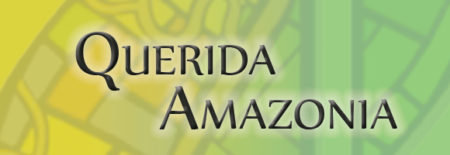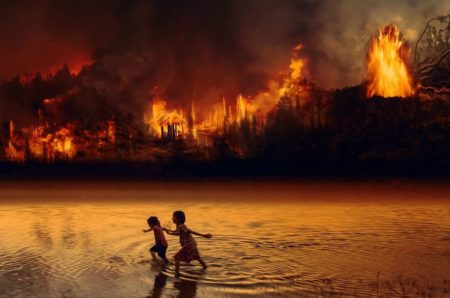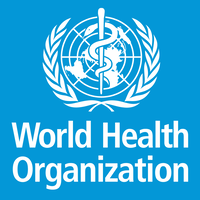John Arnold is the Bishop of Salford and lead Bishop on the environment for the Catholic Church in England and Wales. His article entitled “Faith in the Simple Life” published in The Tablet, 22 February 2020, is another call to action in defence of the Earth and life in our common home. This article inspires environmental responsibility for a meaningful living of our faith.
In his apostolic exhortation on the Amazon Synod, Querida Amazonia (Beloved Amazonia), Pope Francis reminds Catholics that ‘the Lord, who is the first to care for us, teaches us to care for our brothers and sisters and the environment which he daily gives us.’
The Pope is clear that the world must work in solidarity with the people of the Amazon, that their voices must be heard and their ways of development respected. For too long the cry of the Earth has been ignored as we have pushed Creation beyond its limits, with counties in the global north profiting while the cries of indigenous peoples such as those in the Amazon, and others living in poverty in the global south, have been ignored. Pope Frances tells us we must rethink how we define progress. We must move away from short-term economic thinking and find a new system of development that puts people at its heart, protects and restores nature and the environment, supports people to earn a fair living and helps vulnerable communities adapt to changes in global temperatures and increasingly volatile weather, so they can be supported to live full and dignified lives.
A big part of that will involve each of us undergoing our own ‘ecological conversion’. We will need to think about what we buy, how we travel, where we get our electricity, and how what we eat impacts the lives of others. The Catholic community across England and Wales has done a huge amount to tackle the climate and environmental crisis. There are more than 50 ‘Live Simply’ parishes now, which have committed to living in solidarity with the poor and sustainably with Creation. Catholics have joined with millions of others to make their voices heard – marching, taking part in climate strikes or signing petitions and lobbying their MPs – to demand those in power tackle the climate crisis.
Earlier this month, Middlesbrough and Lancaster became the first Catholic dioceses in the United Kingdom to divest from fossil fuels. They join a global cohort of nearly 200 Catholic institutions that have made the decision to divest. In the Diocese of Salford, we are now working towards our own divestment. Operation Noah, a Christian charity working with the Church to inspire action on climate change, campaigns on this issue, encouraging Churches to think about how they invest their funds and to move away from fossil fuels – the major contributor to dangerous climate change – and instead invest in renewable energy options.
This is important when we consider the host of threats that the climate crisis brings to our safety and well-being. The World Health Organisation estimates that climate change will result in 250,000 additional deaths each year between 2030 and 2050, due to increased malnutrition, malaria, diarrhoea and heat stress. Communities in developing countries are already suffering; they talk of harvest failing and unpredictable or extreme weather, and we see this on the news with forest fires or floods. These impacts will be felt mostly in poorer countries that are already suffering the most in the climate catastrophe. The people in these countries are the least able to cope with the catastrophe yet have done least to cause global warming.
For us in the UK, flooding may mean the temporary closure of schools and businesses and serious damage to people’s homes. For people in the Philippines or Bangladesh, flooding means the total loss of those schools and businesses. It means the loss of lives and the loss of seasonal predictability that is needed for well-being. It means the breeding of mosquitoes and the inability to access medical treatment for malaria.
And it’s not just about climate change. The world is waking up to the fact that we are facing a ‘triple crisis’, with environmental degradation, poverty and inequality, and the climate crisis all linked; they uphold one another and one can’t be solved without tackling all three. This is the ‘integral ecology’ Pope Francis in Laudato Si.

In reminding us in Querida Amazonia that ‘best ecology always has an educational dimension that can encourage the development of new habits in individuals and groups’, Pope Francis is calling us to think about all these things. And there are many ways for Catholics to get involved. Cafod’s campaign, ‘Our Common Home’, offers a wealth of resources that we can bring to elected officials so that through policy change we can effect large-scale progress.
For those of us looking for ways to make a difference at home, ‘Living the Change’, a movement which brings together people of different religious and spiritual backgrounds to champion sustainable lifestyles, offers families and individuals suggestions for reducing greenhouse gas emissions and easy, practical ways to make meaningful changes.
However we may respond, it is vital that we all take action. Our faith calls us to recognise our responsibility to all our brothers and sisters and to care for God’s gift to us of our common home. Practical steps to reduce our impact on our environment, to tackle the climate crisis and to speak up for those who are suffering are nothing less than living our faith.
This article was first published in The Tablet and was written by John Arnold.




